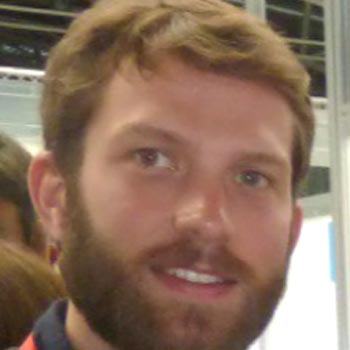Pr Martial MERMILLOD
Pr Martial MERMILLOD

Mermillod Martial
PhD, Full Professor, Chair in Artificial Intelligence
Laboratory of Psychology & NeuroCognition (LPNC, CNRS UMR 5105)
https://lpnc.univ-grenoble-alpes.fr/martial-mermillod
Martial.Mermillod@univ-grenoble-alpes.fr
Curriculum Vitae
Dr Martial Mermillod (Full Professor, IUF, Univ. Grenoble Alpes) is a scientific researcher in the fields of neural computation, psychological sciences, cognitive neurosciences applied to the field of visual perception, visual cognition and affective sciences. He has published more than 110 articles in highly ranked journals (including Neural Networks, NeuroComputing, Connection Science, Cognition, Journal of Neurosciences, Psychological Science, Behavioural and Brain Science, Nature Scientific Reports, etc.) Details are provided here: https://scholar.google.fr/citations?user=DCitfSsAAAAJ&hl=fr) His research topic is to use our knowledge of the human brain and cognition to develop more reliable and efficient artificial neural networks. Deep learning very simplistically simulates a specific part of the human brain (the occipito-temporal cortex), our goal is to extend the simulations to other brain areas in order to stop the use of deep learning as a magic wand for every computational problem.
Most important publications
Solinas, M., Rousset, S., Reyboz, M. & Mermillod, M. (in press). Beneficial effect of combined replay for continual learning. International Conference on Agents and Artificial Intelligence.
Mermillod, M., Bourrier, Y., David, E., Kauffmann, L., Chauvin, A., Guyader, N., ... & Peyrin, C. (2019). The importance of recurrent top-down synaptic connections for the anticipation of dynamic emotions. Neural Networks, 109, 19-30. [IMPACT FACTOR: 5.28].
Niedenthal, P.M., Mermillod, M., Maringer, M. & Hess, U. (2010). The Simulation of Smiles (SIMS) Model: Embodied Simulation and the Meaning of Facial Expression. Behavioral and Brain Sciences, 33(6), 417-433. [IMPACT FACTOR: 21.95]
Mermillod, M., Bonin, P., Mondillon, L., Alleysson, D., & Vermeulen, N. (2010). Coarse Scales are Sufficient for Efficient Categorization of Emotional Facial Expressions: Evidence from Neural Computation. Neurocomputing, 73, 2522-2531 [IMPACT FACTOR: 1.59]
Mermillod, M., Vermeulen, N., Lundqvist, D., & Niedenthal, P.M. (2009). Neural Computation as a Tool to Differentiate Perceptual from Emotional Processes: The Case of Anger Superiority Effect. Cognition, 110 (3), 346-357. [IMPACT FACTOR: 4.16]




